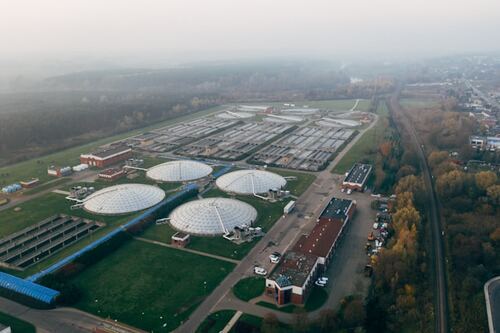Selecting the appropriate water tank for a business can be daunting. The right choice can ensure an uninterrupted water supply, maintain operational efficiency, and safeguard water quality. With various options available, ranging from different materials to sizes, making an informed decision is crucial. Businesses must consider their specific requirements, including capacity, usage, and budget. Investing in a suitable water storage solution is about meeting immediate needs and long-term sustainability.
When exploring the options for commercial water tanks, it’s essential to consider your business’s unique needs. Each industry has specific requirements for a manufacturing plant, an agricultural setup, or a hospitality establishment. The right tank can improve efficiency, reduce costs, and ensure a steady water supply. Therefore, taking the time to evaluate the various factors in selecting a tank is beneficial and necessary.
1. Assessing Your Water Storage Needs
This involves understanding the daily usage, peak consumption periods, and special needs, such as fire safety reserves. For instance, a manufacturing unit may require large volumes of water for cooling processes, while an agricultural business might need significant storage for irrigation. Accurately estimating these needs helps determine the size and type required. Additionally, considering future expansion plans can prevent the need for frequent upgrades.
2. Exploring Tank Materials
They are made from various materials, each with pros and cons. Common materials include polyethene, steel, concrete, and fibreglass. Polyethylene is lightweight, durable, and corrosion-resistant, making it popular for many businesses. On the other hand, steel offers superior strength and is ideal for high-capacity storage. Concrete provides excellent durability and is suitable for underground installations. Fibreglass is known for its chemical resistance and is often used in industries requiring the storage of corrosive liquids. Businesses may better meet their operating needs and adapt to environmental conditions by understanding the qualities of each material.
3. Considering Installation and Maintenance
The location and installation method are critical factors in selecting them. Based on available space and aesthetic preferences, businesses must decide between above-ground and underground tanks. Above-grounds are easier to install and maintain but may require additional protection against environmental elements. While more discreet, underground involves more complex installation processes and higher costs. Maintenance is another crucial aspect; some materials require more frequent upkeep than others. For example, steel tanks may need periodic painting to prevent rust, while polyethene tanks require minimal maintenance. Evaluating these factors ensures a smooth installation process and long-term functionality.
4. Evaluating Cost and Budget
Cost is a significant consideration when choosing a water tank. While choosing the lowest choice may sound appealing, you must consider how the investment will affect you in the long run. Higher initial costs for quality materials and larger capacities can lead to lower maintenance expenses and better durability. Businesses should also factor in installation costs, potential downtime during installation, and any modifications needed for the existing infrastructure. Creating a detailed budget that includes these aspects helps make a financially sound decision.
5. Ensuring Compliance with Regulations
Compliance with local and national regulations is mandatory when installing commercial tanks. These regulations may dictate the type of materials used, installation standards, and safety measures. Ensuring the chosen tank meets all legal requirements avoids penalties and guarantees the supply’s safety and reliability. Consulting with experts or local authorities can provide valuable insights into the regulations and help businesses stay compliant.
Choosing the proper commercial water tanks for your business needs is a multifaceted process that requires careful consideration of various factors. By evaluating these aspects, businesses can invest in a water tank that meets their needs and supports long-term operational efficiency. Ultimately, a well-chosen water tank can significantly enhance the sustainability and reliability of a business’s water supply.
